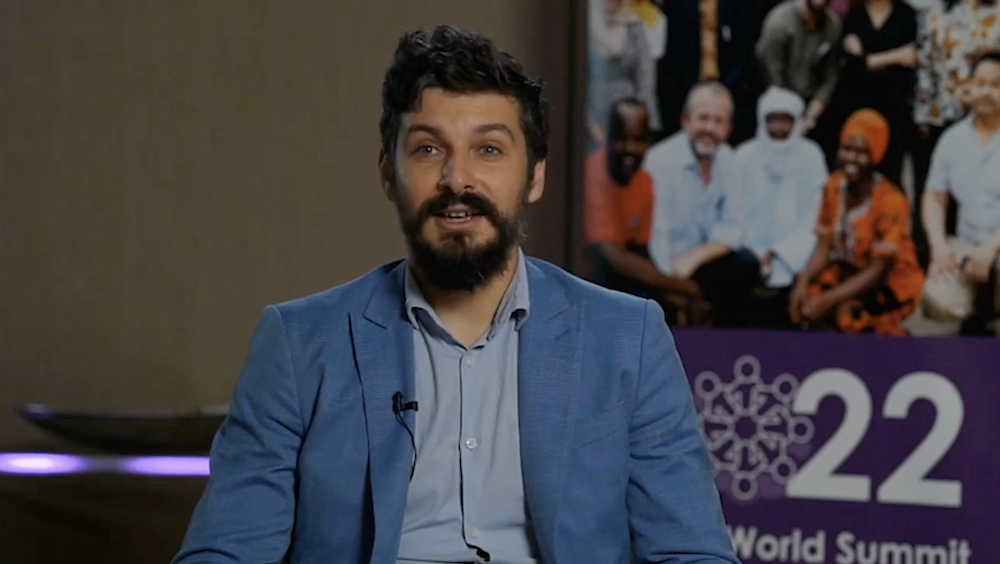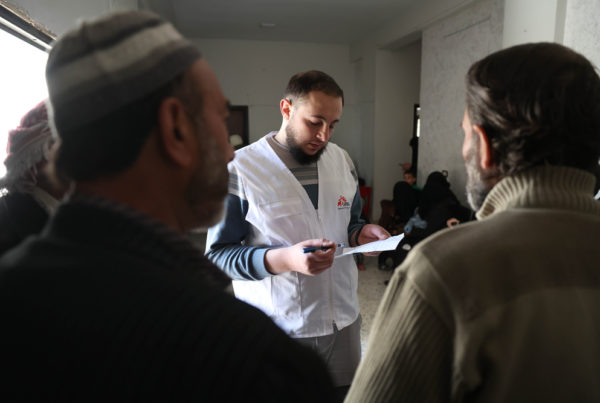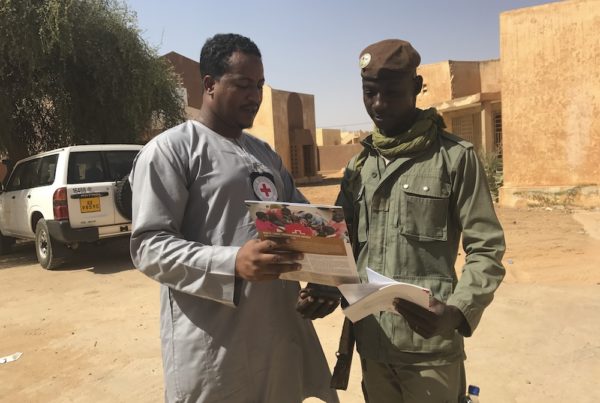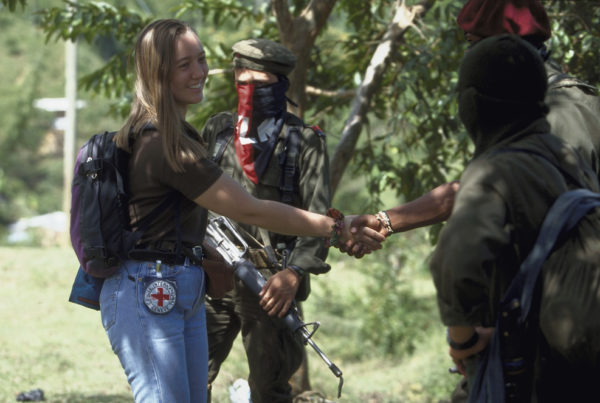
Andrii Kruglashov is the Political Advisor for the International Committee of the Red Cross in Ukraine.
For the last five years, Andrii has been working in his home country to build strong relationships between the ICRC, other humanitarian organisations and the local community.
In June 2022, he participated in his first CCHN negotiation workshop and joined the CCHN community.
We had the chance to sit down and ask him how he battled misinformation and disinformation when the war in Ukraine started, and the ICRC found itself in the middle of a misperception campaign.
Hello and welcome Andrii! Can you tell us what a political advisor does?
Of course! As the political advisor of the ICRC delegation in Ukraine, my job means I get to meet people and build strong relationships between the ICRC and other organisations.
For instance, I talk to the mayor of Kyiv and other authorities to find out how we can pave the way for humanitarian corridors, send trucks with generators where they are needed, or find entry points into affected areas.
I look for ways to do this while keeping our teams as safe as possible.
What was it like for you and the ICRC when the Ukraine war started?
Before February 2022, the ICRC was actively known and working in two regions. Back then, the frontline was huge but well-defined.
On February 24th, when the armed conflict escalated, the frontline we used to know completely changed. Suddenly, the whole country needed our help.
It was particularly intense in March and April 2022. We had to really push through to get closer to the affected people. Not because we were far, but because we were unable to get to where the active fighting was happening.
Neither side had full command and control of what was going on. It was so chaotic that our team couldn’t reach those areas safely.
At the time, few people knew who the ICRC was or what we do, and – most importantly – for whom and why.
Unfortunately, this vacuum eventually was filled with the worst possible interpretations.
The ICRC was accused of transporting people from Ukraine to Rostov-on-Don, a Russian city. This is something the ICRC would never do.
There was also a lot of confusion between the ICRC, the International Federation of the Red Cross and the Russian Red Cross.
I once had a chat with a local council member of Uzhhorod, a beautiful city in the Transcarpathian region of Ukraine, and he asked me: “Why don’t you have an ICRC office in my town?” I said: “Pray for us to never have the office in your town.”
He was a bit shocked, and I explained that having an ICRC office in your city is usually a sign that you’re not doing well, but if you’re in a bad situation, it’s certainly better to have us there.
What did you do when the wave of misinformation, disinformation and hatred hit the ICRC?
In February 2022, we thought our organisation would be known by what we had done previously, but we realized our efforts were only seen in very small areas.
We had to face a dose of cold reality.
When people don’t know your organisation and false information starts circulating, it’s hard to change the narrative.
You need to have an official position ready to counterbalance any mis- and disinformation. If it takes you over a day to react, particularly in a crisis of such acuteness, people start solidifying their ideas about you.
“If you don’t take the space to define who you are, what for and for whom,
it will be done by others.”
At some point it even affected me. It got so bad I called colleagues whom I trust and said: “Guys, did the ICRC take people to Rostov? Did something like that even possibly take place?!” They said: “No, no. That’s crazy!”
Being aligned with our mission and being clear about our purpose helped enormously to dispel the wave of hatred, misinformation, and disinformation about the ICRC’s work in Ukraine.
What advice would you give humanitarians who are facing a misinformation and disinformation campaign?
Build relationships before crisis hits.
When a communication emergency happens, everything you did before is seen under the negative lens.
During such a moment of stress, like the beginning of a war, people need to get information from someone they trust.
When people started saying the ICRC was taking people to Rostov, I had to talk to some of our interlocutors and tell them: “Guys, I’m literally ready to sign with my blood on the wall that we were not doing such things.” And they trusted me because they had known me for years.
Who cares who your organisation is in a vacuum?
What I learned is that people care about who you are for them, for their needs. And when you are helpful and relevant, people are grateful.
Clear communication should be prioritized because it keeps staff safe. We are not superheroes, and our aprons or vests are not a Kevlar.
Also, don’t underestimate the power of social media to get closer to communities.
Sometimes I would see people posting things saying the ICRC office was empty or we had left Ukraine. I would immediately comment saying: “I’m here [in Ukraine]! Come get a coffee with me.” I even shared a video of myself with the Land Cruiser and the ICRC logo in the background saying: “No, no, no. We’re right here and we’re staying!”
In the end, we humanitarians are as safe as we are respected and accepted.
The sense of trust and proximity we build as human beings with other human beings, that’s negotiations. It’s about building relationships.



